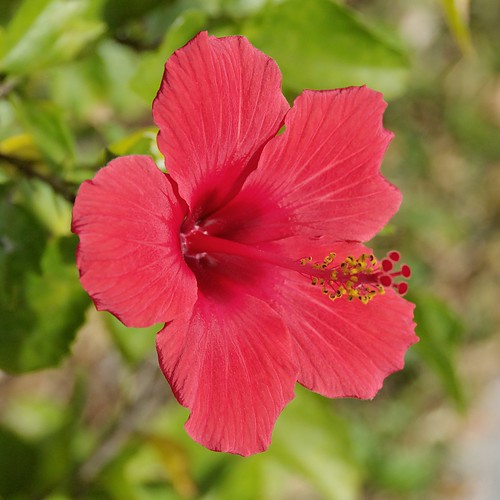 Hotel Walkway at Sunset
Hotel Walkway at Sunset
Two days of hard grind. A lot of administrivia to sort (meeting dates, etc.); many paragraphs of the Directives to read; many defect reports on OOXML to address; and some vigorous discussion to be had about interoperability.
Some concrete progress was made, notably:
- The first defect reports on ISO/IEC 29500 (aka OOXML) were addressed, and fixes agreed
- Some principles were established how updates (as opposed to fixes) for OOXML might be processed
- Some useful discussions in WG 5 clarified the scope of the ongoing work drafting a technical report giving guidance on how 29500 (OOXML) and 26300 (ODF) can interoperate
From my perspective, the most exciting discussion during these meetings centred on a presentation from the ODF editor, Patrick Durusau, on what he called “true” interoperability. Patrick (betraying his Topic Maps background) set out a suggestion that a PSI might be created to identify the document constructs described by the two document format Standards, and that each PSI might be in turn associated with metadata and documentation related to that construct. Essentially, this approach views the “problem” of interoperability between ODF and OOXML as a problem of documentation — though Patrick also pointed out that the interoperability problem had already been solved by corporations (maybe he meant Microsoft, for example) and that these corporations were, perhaps churlishly, keeping the information to themselves.
I see the establishment of such rich descriptive material as being a first important step on a road which leads to the dissolving of what we currently see as meaningful differences between the document formats. Perhaps in time the rest of the world will come to realise too that when we talk of a preference for ODF and OOXML we are, in the main, expressing a preference for syntax, and that the juvenile “OOXML vs ODF” arguments – however much they are loaded with corporate agendas masquerading as moral superiority – will achieve precisely nothing for those who matter: the end users.
 A soup of sea snake, pig's trotter and seaweed
A soup of sea snake, pig's trotter and seaweed
Another day of work in the hotel: which is a shame since the weather outside has been even warmer and very sunny. This morning was mostly given over to a meeting (via Skype™) with OASIS people to discuss how the future maintenance of ODF might be handled. This was a very constructive exchange, and while there are many details to work out over the coming weeks, my personal impressions was that all parties felt confident a good solution was in reach, and that the era of megaphone diplomacy on this topic was behind us all.
The afternoon was given over to drafting meeting notes, further readings of the JTC 1 Directives, and preparations for the WG meetings tomorrow. The coming-together of a number of people interested in both OOXML and ODF has led to some interesting lobby discussions over future directions for these standards. The groovy (but as yet unimplemented) new feature of RDF in ODF for metadata capture has certainly caught the imagination: might an NB propose that this feature is added to OOXML via an amendment? Conversely, the fact that a whole bunch of spreadsheet functions have been standardised in ISO/IEC 29500 (OOXML) potentially saves ODF a lot of work/pages. Certainly any new International Standard version of ODF would need a cast-iron reason to eschew borrowing any of these existing function definitions. Harmonious times may lie ahead …
In the evening Murata Makoto (who seems determined to test our Western sensibilities) took us for a meal of sea snake: a rare Okinawan delicacy. The charming old lady proprietor of the restaurant had been cooking our snake all day (we had had to place our orders yesterday). She explained that traditionally the sea snake was the food of kings, not because of rarity but because of the difficulty of preparation. Once the snake is caught it is smoked, turning it black. The snake is then boiled for one or two days (before domestic ovens this was a real chore) and at some point the many tiny bones in it have to be removed by hand.
And the taste? Well, it was certainly not like chicken. Quite chewy (so much muscle!), and a little like a gamier version of smoked mackerel. Yumsk.
 The Ruins at Nakagusuku
The Ruins at Nakagusuku
Today (apart from visiting the Ruins of Nakagusuku Castle), was mostly given over to a discussion of JTC 1 Procedure. The JTC 1 Directives collectively make an ever-surprising document — just when you think you've got your head around some point, a new paragraph is discovered which calls it all into question. When combined with jet lag, this can be heavy work.
I have been following the tweets of some fellow SC 34 people as they make their ways from various corners of the globe to join the Okinawa meetings. I expect tomorrow will see the influx of even more standards wonks into the hotel. Already there is a certain amount of "geeking out" going on. Over the breakfast table the hot topic of discussion concerned marking-up pagination decisions in documents from systems which flowed footnotes over multiple pages. And at lunch there was much debate over whether editors should prefer using "shall" to "has to" in standards documents (consensus: non-native english speakers find "shall" easier to understand).
 It is nice to get away from the freezing drizzle of the UK,
It is nice to get away from the freezing drizzle of the UK,
to the
milder climes and bright sunshine of Okinawa.
I am in Okinawa for a week of ISO/IEC JTC 1 SC 34 meetings. To be precise, these are not meetings of SC 34 itself (there will be no plenary), rather the week will be taken up with two activities by parts of SC 34:
-
On Monday and Tuesday, a team picked by our Chairman will meet to discuss the maintenance procedures for ODF among themselves, and with OASIS representatives.
-
On Wednesday, Thursday and Friday SC 34’s two new working groups, WG 4 and WG 5, will meet.
These in turn will generate plenty of input for SC 34’s full Prague meeting in March.
ODF Maintenance
I have already written about the background to this activity, both the issues caused by the current lack of agreement on how maintenance should proceed, and JTC 1’s instruction to SC 34 from Nara that SC 34 and OASIS should develop a document specifying “detailed operation of joint maintenance procedures”.
At this stage the negotiations are completely informal, and expected simply to offer an opportunity for all parties to have an open discussion aimed at increasing the level of mutual understanding to a point where they are ready to start working together in earnest on drafting the agreement text. For SC 34, this text will need to be presented to members in time for consideration in Prague, at which meeting it will seek SC 34’s blessing to be passed up to JTC 1 for further consideration.
WG 4 & WG 5
Okinawa will see the first two meetings of our two new working groups, WG 4 (dedicated to maintenance of ISO/IEC 29500, aka OOXML), and WG 5 (dedicated to document file format interoperability). Both groups are expected to meet face-to-face more frequently than the rest of SC 34, and to make heavy use of the newfangled teleconferencing technology that JTC 1 has recently embraced.
WG4’s business in the short term will be largely taken up with correcting defects in the 29500 text (in JTC 1 parlance, producing corrigenda) in response to reported defects. A number of these have been submitted already, by Japan, the UK and Ecma themselves. The UK has a large number on additional ones brewing and is likely to submit a second batch in February.
WG 5’s short-term work is to concentrate on the Technical Report (a more informal document that an International Standard) being drafted which sets out some of the considerations when mapping between ISO/IEC 26300 (ODF 1.0) and ISO/IEC 29500 (OOXML). I’m wondering too whether there will be any moves in this WG to garner support for new work in this area. Now that the dust has settled over document formats themselves, even non XML experts are beginning to grok that by themselves these standards don’t actually give us that much, but are a useful foundation on which to work. “Interoperability” in particular requires so much more than simply having standardised document formats. I await developments in this space with interested anticipation …